Electric Vehicles are Accelerating Barbados’ Energy Transition
Barbados has one of the world's most ambitious energy targets. Zero-emission cars and buses are steering the way forward.

Solar energy sources are so widely accepted across Barbados that the founders of Megapower, the leading electric vehicle supplier on the island, originally planned to launch as installers of solar photovoltaic carports. But that plan changed when Jo Edghill imported a Nissan Leaf for her personal use 10 years ago. The car, one of the earliest electric vehicles (EVs) available globally and one of the first in Barbados, was a conversation-starter.
“Nobody was that interested in solar carports,” Edghill remembers, “but the Nissan Leaf was such a novelty that from the first day, people started telling us, ‘Hey, we'd really like an electric vehicle, too.’”
Awareness that greenhouse gas emissions contribute to climate change played a role, Edghill believes, but high gas prices in Barbados were an equally important factor. Barbados is heavily dependent on imported fossil fuels, leaving it vulnerable to fluctuations in global oil prices—with impacts that reverberate across the economy. Barbados has among the most expensive gasoline in the Caribbean and Latin America and the 11th most expensive in the world. Car maintenance can be pricey because dealers and shops rely on imported parts whose delivery is vulnerable to supply-chain snarls.
So even though EV costs were significant—prior to 2022, buyers paid excise tax, import duty, and the value added tax, which added costs of almost 45 percent—Edghill sensed that interest was strong. Spotting an opportunity to introduce EVs on large scale, she and partner Simon Richards launched Megapower in 2013.
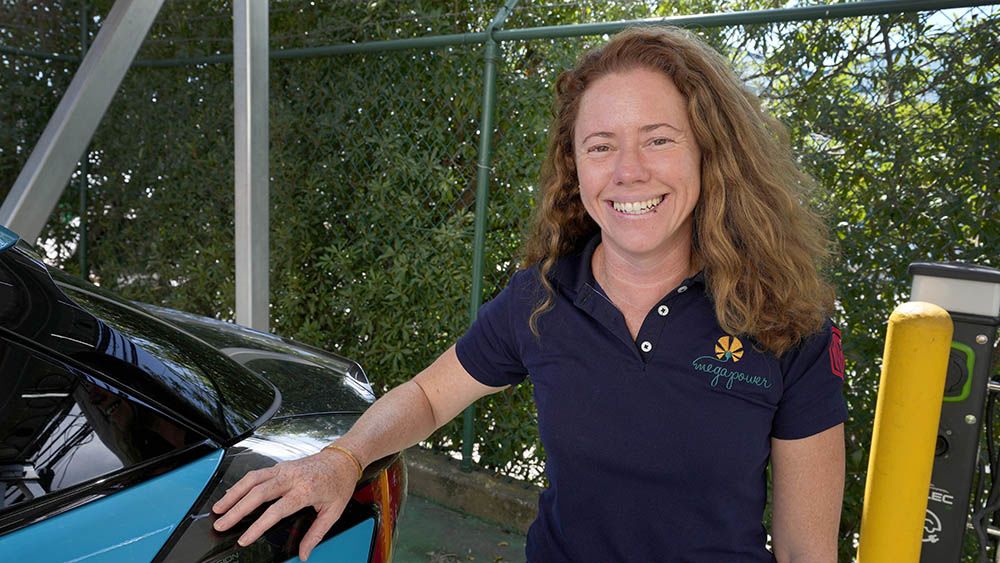
Jo Edghill, co-founder and Managing Director of Megapower.
Jo Edghill, co-founder and Managing Director of Megapower.
Her hunch was correct. Since the company’s founding, the quantity of renewable energy vehicles as a share of the total number of vehicles imported has been steadily increasing. Over the last two years, their numbers are equivalent on average to about 17 percent of all cars imported, according to an August 2022 report from the Central Bank of Barbados.
From the government’s perspective, this shift accelerates a much larger goal. Transportation represents a focal point of the country’s energy transition because 33 percent of energy consumed in Barbados is in the transportation sector, according to the Ministry of Energy.
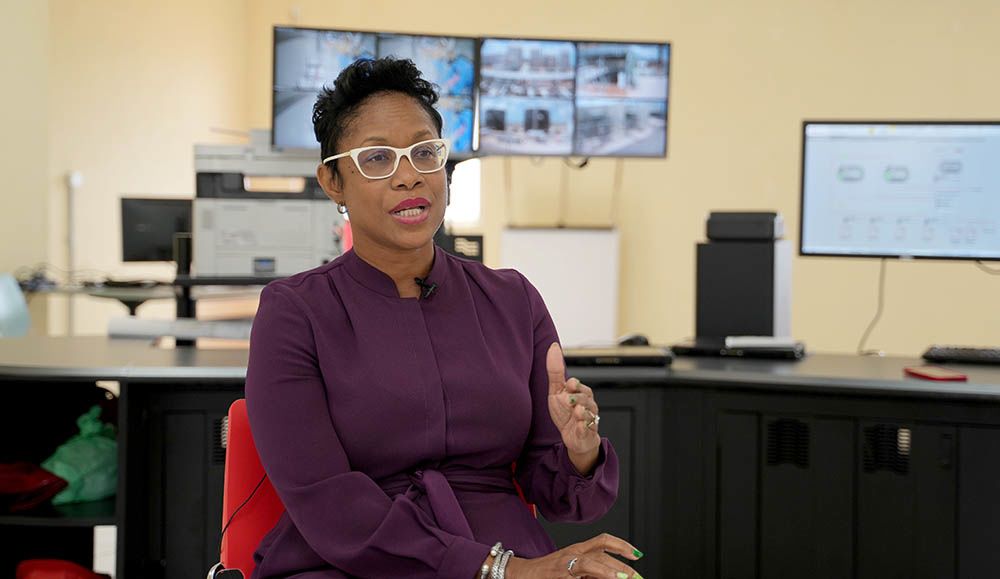
Lisa Cummins, Minister of Energy and Business Development.
Lisa Cummins, Minister of Energy and Business Development.
“Barbados has one of the most ambitious energy targets in the world, and electric vehicles play an important role in helping us achieve our nationwide goal of zero domestic consumption of fossil fuels,” says Lisa Cummins, Barbados’ Minister of Energy and Business Development.
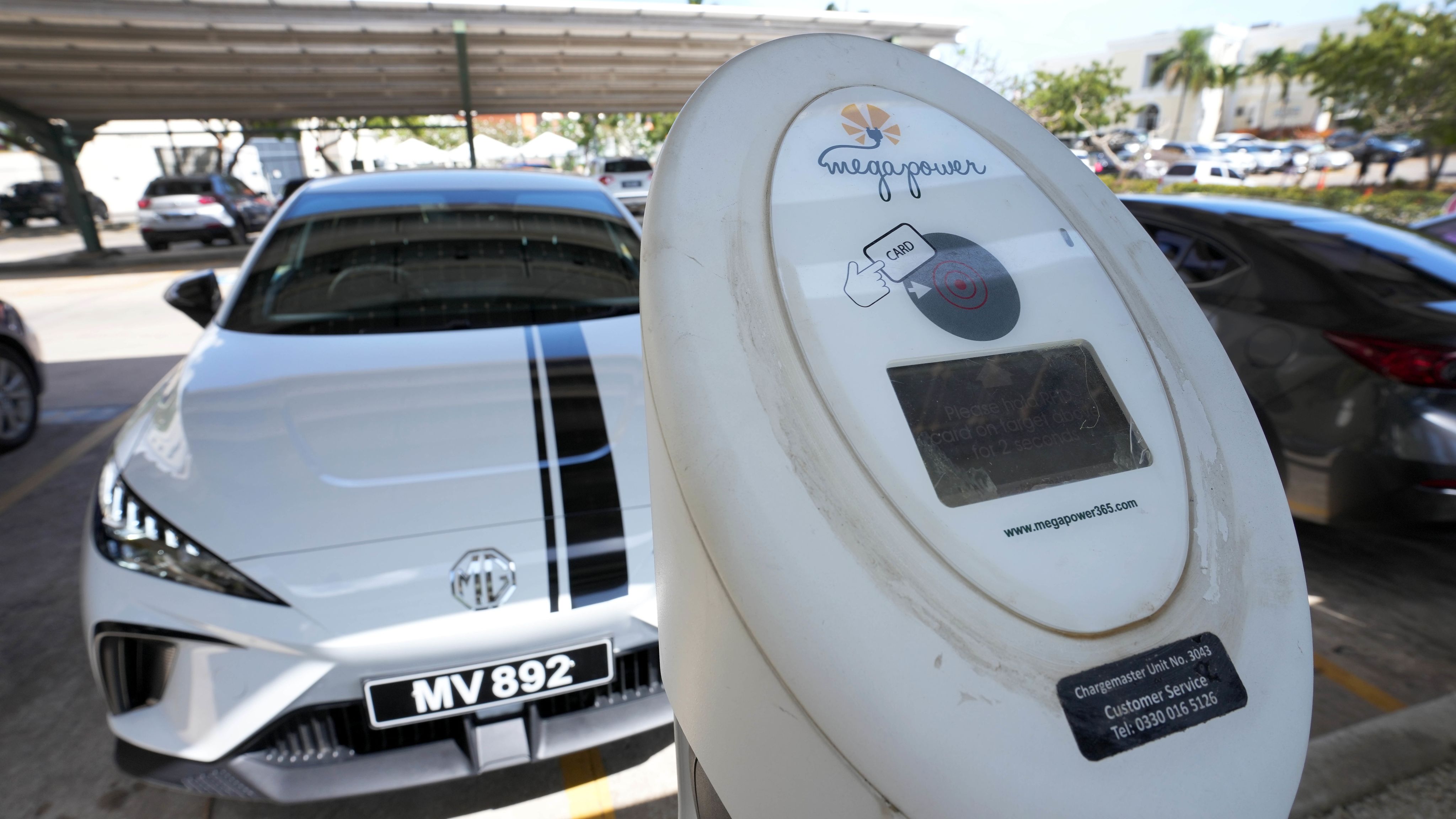
Steering Barbados’ energy transition
Electric vehicles can offer solutions especially suited to island nations such as Barbados and other countries throughout the Caribbean region, according to Kartik Gopal, IFC Senior Industry Specialist. That's because these islands "are particularly exposed to the double impacts of high fossil fuel prices and rising sea levels due to climate change," he says. "Electric vehicles, powered by locally produced renewable energy, can offer a viable pathway for reducing fossil fuel dependence while contributing to climate change mitigation."
Throughout the Caribbean region, only a few countries’ energy or climate resilience plans include a focus on electric vehicles, according to IFC’s new Regional Private Sector Diagnostic, which assesses opportunities for and constraints to private-sector led growth. In addition to Barbados’ “fossil-fuel free by 2030” strategy, Antigua and Barbuda is targeting 100 percent of new vehicle sales to be electric by 2030, and Dominica is promoting the import of hybrid vehicles.
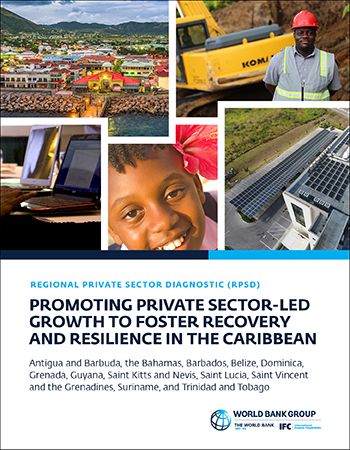
Barbados offers the nascent electric vehicle markets in these and other Caribbean nations a model for their own energy transition strategies, says Ronke-Amoni Ogunsulire, IFC Regional Manager for the Caribbean.
“Just as Barbados has benefitted from other countries’ experiences in energy transition and EV adoption, it is sharing lessons with governments of small states and island nations that face similar issues, such as supply chain challenges and high taxes,” Ogunsulire says.
To ease Barbadians’ access to electric vehicles, Barbados’ government offered a tax break in March 2022. This removed duties on electric vehicles and instituted a flat 10 percent in added taxes. The results of the announcement were swift, Edghill says. In early 2023, 71 EVs were waiting at the port, Megapower’s largest single shipment so far.
Those new EV owners will find that a single charge allows them to cover a lot of ground on this 167 square mile (432 km2) island. A typical electric sedan has a 61 kilowatt-hour battery, Edghill says, which in Barbados can last more than 350 kilometers before it needs to be plugged in. Charging isn’t a problem: across Barbados, there are now more public charging stations than there are gas stations. Megapower’s new app allows electric car owners to scan a barcode on their phone, streamlining point-of-sale payments.
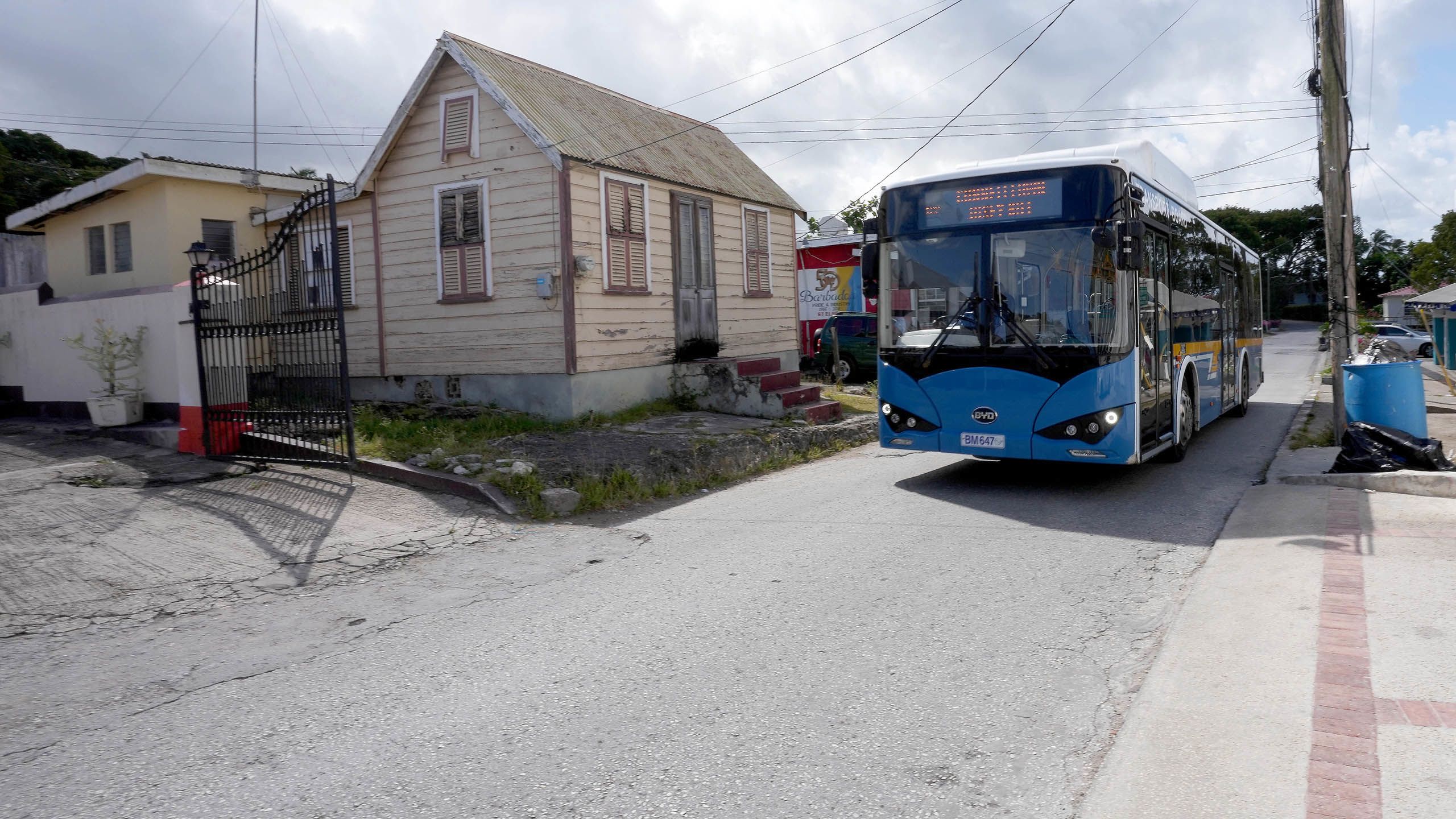
All aboard electric buses
Though electric cars are gaining traction in Barbados, the public transport board’s electric buses are probably the most visible EVs criss-crossing the island. These buses, introduced in August of 2020, attract riders with air-conditioning, wi-fi, and wheelchair lifts, all of which the old diesel buses lack. There are now 49 electric buses, with about a dozen on the way, and the government has requested pricing for even more.
The move to electrify Barbados’ public fleet reflects a gradual but steady worldwide shift toward zero-emissions public transportation. That's important because road vehicles cause 70 percent of direct transport emissions, according to the Intergovernmental Panel on Climate Change. An analysis by the United Nations Environmental Programme showed that a shift to zero and low emission battery electric, hybrid, and other low emission buses could save approximately 1.4 billion tons of CO2 and almost 30 million tons of particulate matter by 2050.
Zero-emission buses, which can have lower maintenance costs than other vehicles, are especially important in cities and countries that depend on well-functioning urban transport to power post-pandemic recovery. Barbados, a tourism-dependent economy, is firmly in this category: the economy contracted by an estimated 18 percent in 2020 and recovery has been slow, according to the World Bank.
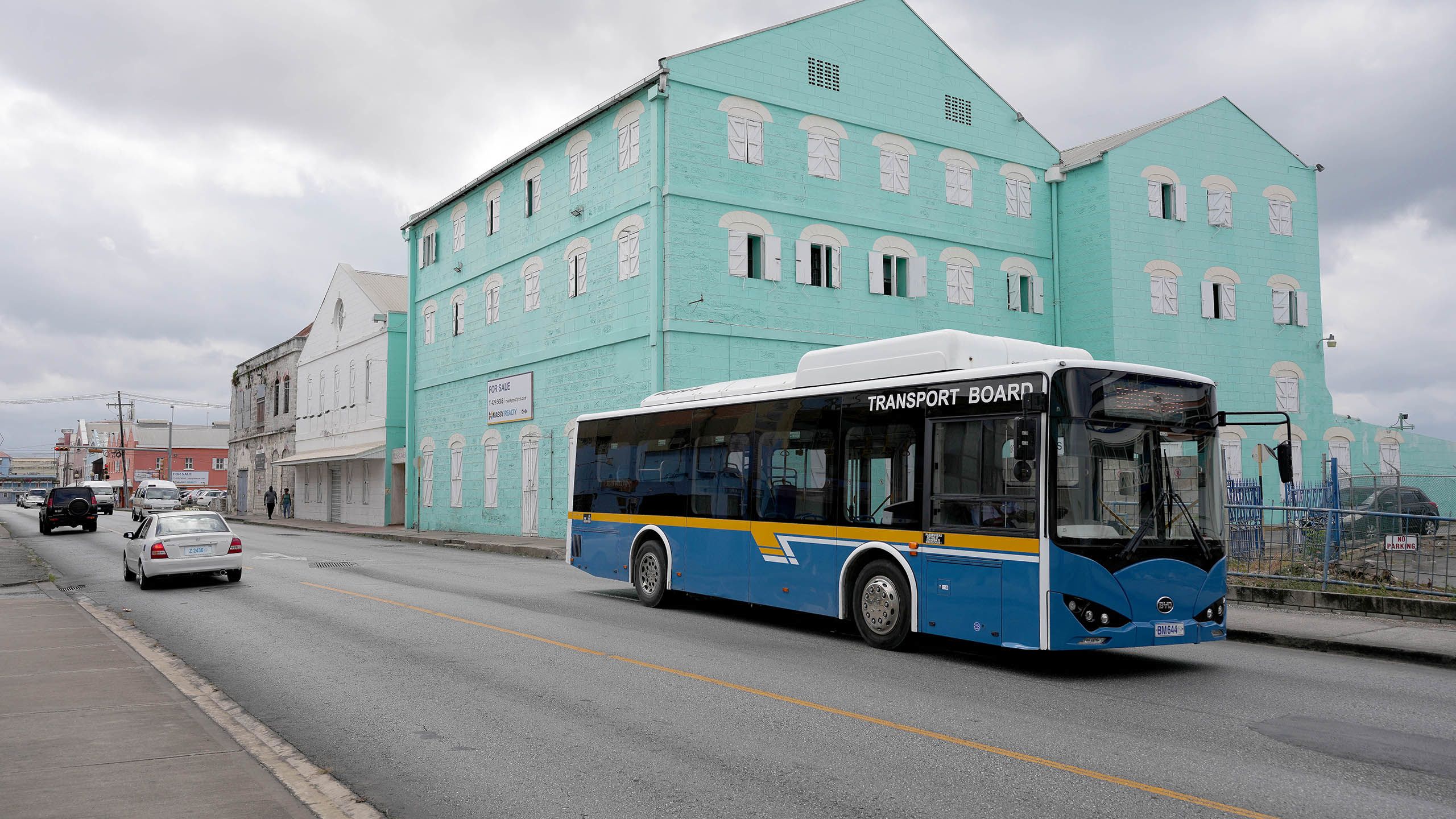
To speed adoption, Barbados’ government is offering incentives for government agencies to make the switch to EVs that best fit their mission. A new, revolving loan facility will help public service vehicle operators get low interest financing so they can also make the transition to electric or hybrid vehicles. Separately, Prime Minister Mia Amor Mottley has also announced that postal workers will be able to borrow up to Barbados $25,000 to acquire electric motorcycles.
Barbados’ policies and incentives to support its target of electrifying all of its buses and public fleet can generate $200 to 400 million in savings, according to research from the Inter-American Development Bank, which calls the shift to EV’s “inevitable.”
The new policies to facilitate purchases of electric cars and buses are “a big statement by the government,” Edghill says. “Barbados has a strong and clear energy transition policy. I think the government has really [backed its commitment to] renewable energy and the benefits to Barbados, and of electric transport as well.”
For Sonia Branch, a career bus driver who re-trained two years ago so she could shift over to electric buses, the energy transition is much more personal. “The world is going green, and I’m just glad to be a part of it,” she says.
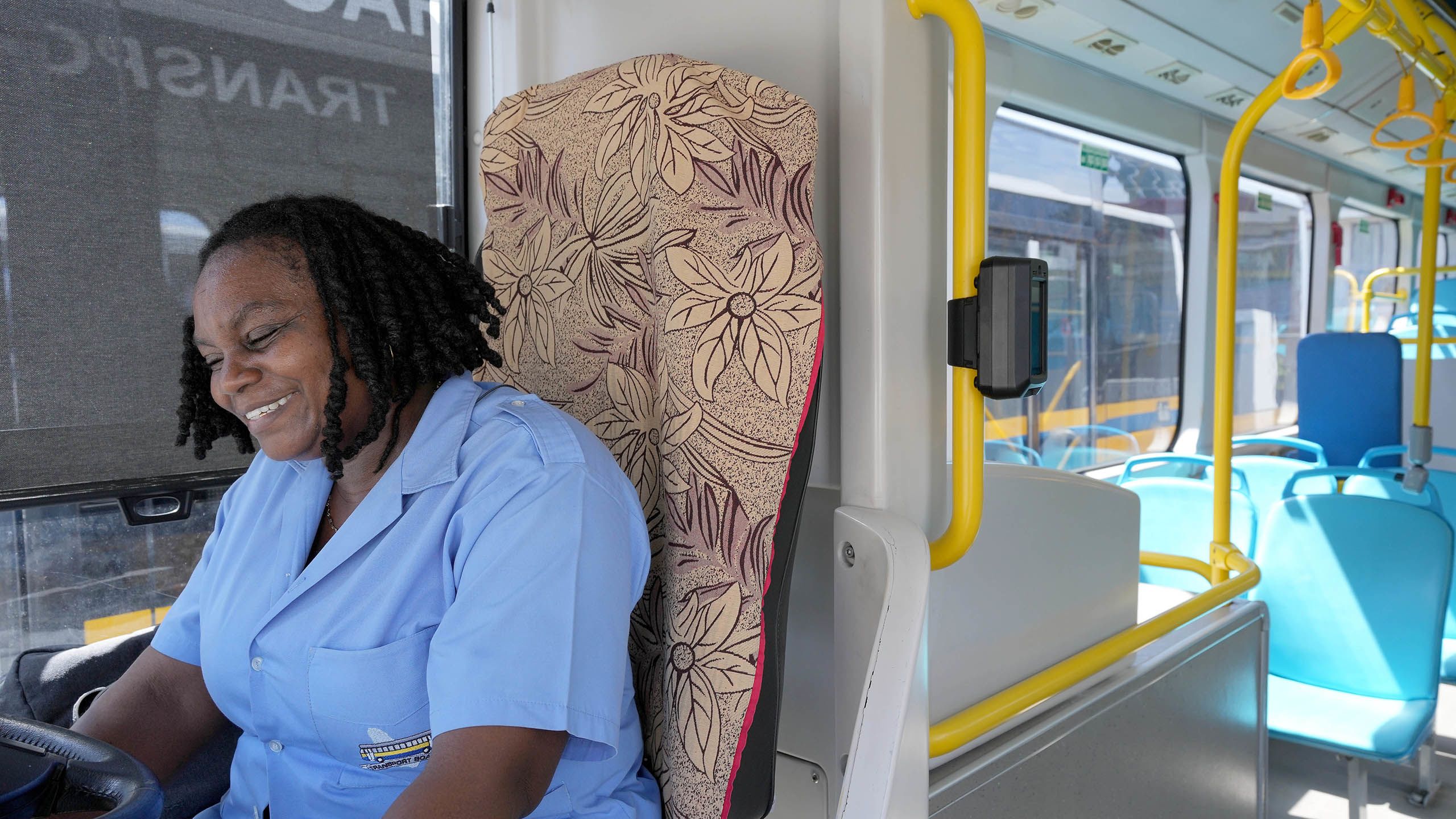
Published in June 2023